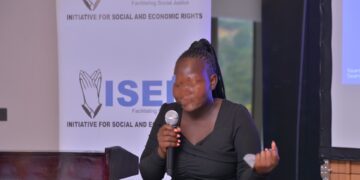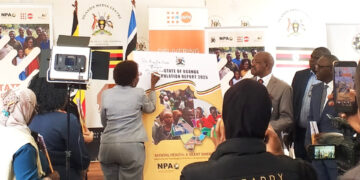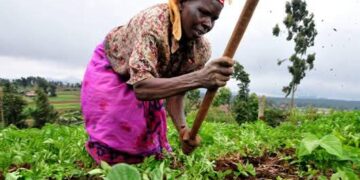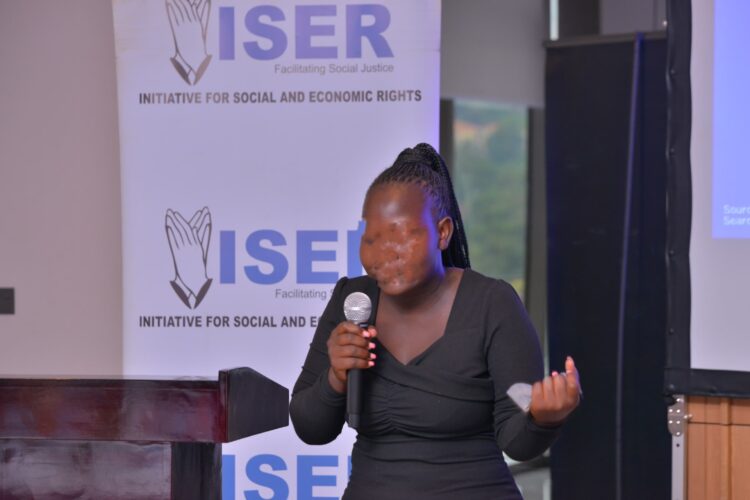By Leonard Kamugisha Akida,
KAMPALA
Teenage mothers and rights activists have condemned the expulsion of pregnant students from schools, saying the practice violates their right to education and worsens their vulnerability.
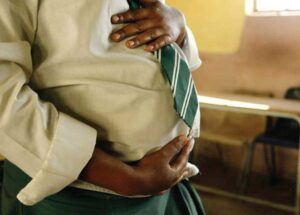 The outrage follows the recent expulsion of Namukisa Sarah, a final-year student at the Medical Laboratory Training School in Jinja, over her pregnancy. The Equal Opportunities Commission later overturned the decision after a complaint by the Uganda Law Society, but activists say many similar cases go unreported.
The outrage follows the recent expulsion of Namukisa Sarah, a final-year student at the Medical Laboratory Training School in Jinja, over her pregnancy. The Equal Opportunities Commission later overturned the decision after a complaint by the Uganda Law Society, but activists say many similar cases go unreported.
“Dismissing a student for getting pregnant is like adding salt to a fresh wound,” said Sophie Walakira, a teenage mother from Nansana, during a stakeholder dialogue organized by the Initiative for Social and Economic Rights (ISER) in Kampala on Wednesday.
Walakira, who became pregnant during the COVID-19 lockdown, was rejected by several schools before being accepted at London College Nansana, where she completed Senior Six.
“When you deny a teenage mother the right to education, you create a sequence of illiteracy for generations to come,” she emphasized.
Her experience mirrors that of Celestine Mugenyi and Calvin Nalufunya, both teenage mothers who struggled to return to school amid rejection and social stigma. Nalufunya, impregnated by her teacher, was forced to terminate her pregnancy but later financed her own education and sat for her Senior Six exams.
Faith based schools have been identified as the most perpetrators of expelling students victims of teenage pregnancies, which survivors say denies the affected learners their rights to education.
“Teenage pregnancies are perceived as a CRIME. Faith-founded schools are the biggest culprits of this. They strongly discriminate against us and send us away,” Walakira stated.
Tororo Woman MP Sarah Opendi criticized schools for punishing pregnant girls, calling for policy flexibility.
“If a girl is still early in pregnancy and studying at a day school, there is no reason to expel her. We must support these girls to complete school,” Opendi said, urging government investment in prevention and accountability.
According to the 2024 National Census, 26% of school-aged children in Uganda are out of school, with teenage pregnancy and child marriage among the leading causes. Nationally, 1 in 4 girls aged 15–19 has begun childbearing, yet only 8% of pregnant girls ever return to school.
ISER’s Sumayah Labila Musoke said the crisis is not only educational but also economic.
“Teenage pregnancy is not merely a health concern. It is a crisis of equity, a violation of justice, and a failure of our collective responsibility,” Sumayah said.
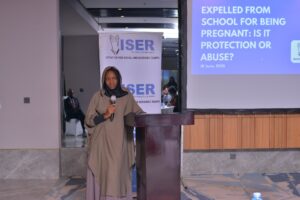
“Every time a girl drops out, we lose productivity and revenue as a country. It’s a national crisis.”
Rights groups now demand the revision of Ministry of Education guidelines that enforce mandatory maternity leave and restrict re-enrollment, as well as an end to involuntary pregnancy testing, which they say violates girls’ privacy and dignity.
Despite existing laws and policies, teenage mothers say the system continues to punish them, leaving their futures and Uganda’s development at risk.
